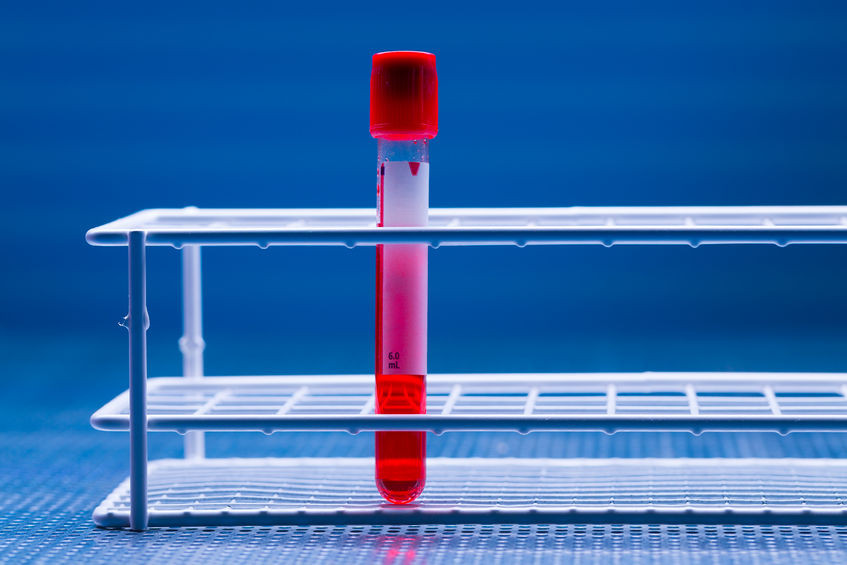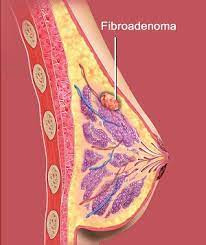Definisi
Pemeriksaan CA 15-3 adalah tes darah yang digunakan untuk memantau kanker tertentu dengan memeriksa kadar CA 15-3 dalam darah. CA 15-3 adalah suatu antigen yang sering terdapat pada jaringan payudara. Antigen adalah protein yang berfungsi sebagai penanda khas suatu sel dan bisa membuat tubuh memberikan respons imun.
CA 15-3 adalah penanda tumor yang memberikan informasi mengenai suatu keganasan. Istilah ini mencakup segala sesuatu yang ada di dalam sel kanker atau sel lain yang merespons kanker, baik yang diproduksi oleh sel tersebut atau yang ditemukan di dalamnya. Terkadang, dapat ditemukan penanda tumor pada penyakit selain kanker tertentu.
CA 15-3 adalah zat yang merangsang sistem kekebalan tubuh Anda. Jenis sel kanker tertentu mengeluarkan antigen CA 15-3 ke dalam darah. Meskipun antigen CA 15-3 sendiri tidak memicu kanker, kadarnya dalam tubuh dapat meningkat seiring dengan bertambahnya sel kanker, seiring dengan pertumbuhan tumor.
Kanker payudara yang kambuh kembali sebagian besar melepaskan CA 15-3 di tubuh, menjadikannya sebagai kanker terbanyak yang dikaitkan dengan antigen ini. Kanker payudara bisa meningkatkan kadar CA 15-3 di tubuh, dengan melepaskan protein ini ke dalam darah.
Kami juga memiliki artikel mengenai kanker payudara yang dapat Anda baca di sini: Karsinoma Payudara - Definisi, Faktor Risiko dan Tata Laksana.
Indikasi
CA 15-3 berfungsi sebagai penanda tumor. Penanda ini cenderung meningkat ketika kanker berkembang menjadi lebih berat dan menurun ketika tumor menyusut setelah menerima pengobatan kanker. CA 15-3 adalah salah satu dari sejumlah penanda tumor yang digunakan untuk memantau pasien kanker payudara stadium 4 (metastasis). Namun, tidak disarankan untuk menggunakan tes ini untuk mengidentifikasi kanker payudara yang diduga kambuh, meskipun dokter spesialis onkologi (spesialis kanker) bisa menyarankan pemeriksaan ini.
Tes CA 15-3 bisa memantau kanker payudara dan responsnya terhadap pengobatan yang diberikan. Dokter mungkin merekomendasikan tes CA 15-3 pada pasien yang didiagnosis dengan kanker payudara stadium lanjut.
Dokter tidak menggunakan tes ini sebagai alat skrining atau diagnostik untuk mendeteksi kanker payudara. Beberapa orang yang didiagnosis menderita kanker payudara mungkin menunjukkan kadar CA 15-3 yang rendah. Tes ini tidak berguna bagi individu dengan kanker payudara stadium dini, karena hanya di bawah 50% dari kasus kanker payudara yang akan menunjukkan peningkatan kadar CA 15-3.
Kontraindikasi
Tidak ada individu yang dikontraindikasikan dalam melakukan pemeriksaan kadar CA 15-3 dalam darah; setiap orang bisa menjalani pemeriksaan darah untuk memantau kadar CA 15-3 dalam tubuhnya.
Persiapan Sebelum Pemeriksaan
Pemeriksaan ini bisa dilakukan di rumah sakit, klinik, atau laboratorium. Tidak ada persiapan khusus yang perlu dilakukan sebelum melakukan pemeriksaan ini. Pastikan bahwa dokter Anda mengetahui semua obat, vitamin, suplemen, atau obat herbal yang sedang Anda konsumsi secara rutin. Obat-obatan yang dimaksud juga mencakup semua obat yang dijual bebas dan zat terlarang yang mungkin Anda konsumsi.
Ada obat dan suplemen tertentu yang berpotensi memengaruhi akurasi dari pemeriksaan CA 15-3. Salah satu senyawa tersebut adalah biotin, yang juga dikenal sebagai vitamin B7, vitamin H, atau koenzim R. Pemeriksaan CA 15-3 bergantung pada interaksi antara biotin dan antigen CA 15-3. Namun, konsumsi biotin yang berlebihan berpotensi memengaruhi akurasi dari pemeriksaan.
Meskipun asupan biotin harian yang disarankan kemungkinan besar tidak menimbulkan efek merugikan, mengonsumsi suplemen biotin dalam dosis besar dapat mengakibatkan hasil tes yang tidak akurat dan menunjukkan hasil negatif palsu. Hentikan konsumsi suplemen apa pun yang mengandung biotin dengan dosis lebih dari 0,03 miligram, sekitar 72 jam sebelum pemeriksaan.
Prosedur Pemeriksaan
Tenaga kesehatan akan mengambil sampel darah yang dibutuhkan untuk pemeriksaan dari pembuluh vena, umumnya dari vena di lengan Anda, menggunakan jarum suntik kecil. Setelah jarum dimasukkan, sejumlah darah akan diambil dan dimasukkan ke dalam tabung reaksi. Anda mungkin merasa sedikit nyeri saat jarum dimasukkan atau dikeluarkan.
Nilai Normal dan Abnormal
Kadar CA 15-3 di tubuh dapat bervariasi berdasarkan usia, jenis kelamin, dan kesehatan umum. Laboratorium yang berbeda juga bisa memiliki rentang nilai normal yang sedikit berbeda. Nilai dari CA 15-3 yang masih dianggap normal adalah 30 U/mL (unit/mililiter) atau di bawahnya. Bila terjadi peningkatan, maka bisa menjadi tanda perkembangan suatu tumor.
Hasil dan Saran (Pemeriksaan Lanjutan)
Dokter akan menilai hasil tes ini bersama dengan informasi medis lainnya pada pasien. Biasanya, kadar CA 15-3 yang lebih tinggi bisa ditemukan pada kanker payudara dengan stadium lanjut dan jumlah sel kanker yang besar di dalam tubuh. Kadar CA 15-3 biasanya meningkat seiring dengan perkembangan kanker. Adanya peningkatan kadar CA 15-3 sering diamati pada kasus kanker payudara yang sudah menyebar ke organ lain, terutama ketika kanker telah menyebar ke tulang atau hati.
Peningkatan kadar CA 15-3 selama jangka waktu tertentu mungkin menunjukkan bahwa seseorang tidak berespon terhadap pengobatan atau kankernya kembali kambuh. Kemanjuran pengobatan dapat ditunjukkan dengan menurunkan atau mengembalikan kadar CA 15-3 ke rentang normal.
Terkadang, seseorang dengan kadar CA 15-3 dalam batas normal mungkin masih menderita kanker payudara, karena kadar yang normal masih belum menjamin bahwa kanker payudara tidak ada pada seseorang. Kadar CA 15-3 mungkin masih belum cukup tinggi untuk dideteksi. Selain itu, sekitar 20% hingga 25% pasien kanker payudara stadium lanjut memiliki tumor yang tidak melepaskan protein CA 15-3 ke darah.
Penting untuk diketahui bahwa hasil pemeriksaan CA 15-3 yang positif tidak selalu menunjukkan adanya atau kambuhnya kanker payudara. Ada faktor lain yang dapat menyebabkan terdeteksinya CA 15-3 dalam darah. Beberapa penyakit seperti kanker paru-paru, pankreas, ovarium, prostat, dan usus besar, serta sirosis hati, peradangan hati (hepatitis), dan gangguan payudara nonkanker, bisa memperlihatkan peningkatan kadar CA 15-3 dalam tahap yang ringan atau signifikan. Selain itu, sejumlah kecil orang yang tampak sehat mungkin juga mengalami peningkatan kadar CA 15-3.
Konsultasikan ke Dokter yang Tepat
Hasil pemeriksaan bisa berbeda karena berbagai faktor seperti usia, jenis kelamin, riwayat kesehatan, atau hal lain seperti laboratorium yang digunakan. Tenaga kesehatan umumnya tidak hanya mengandalkan tes darah CA 15-3 untuk menilai respons pasien terhadap pengobatan kanker, meskipun tes tersebut bisa memberikan beberapa informasi yang bermanfaat.
Karena kadar antigen dapat berubah karena berbagai alasan, oleh karena itu, hasil tes ini umumnya akan diperiksa bersama pemeriksaan diagnostik lainnya. Anda bisa berkonsultasi mengenai arti dari hasil tes Anda dengan dokter atau spesialis onkologi.
Mau tahu informasi seputar hasil pemeriksaan laboratorium, radiologi, dan lainnya? Cek di sini, ya!
- dr Hanifa Rahma
CA 15-3. (2023). Retrieved 13 June 2023, from https://www.urmc.rochester.edu/encyclopedia/content.aspx?contenttypeid=167&contentid=ca_15_3#
What to Know about the CA 15 - 3 Test and Breast Cancer. (2023). Retrieved 13 June 2023, from https://www.medicalnewstoday.com/articles/the-ca-15-3-test-breast-cancer
What is the Cancer Antigen 15-3 Blood Test?. (2022). Retrieved 13 June 2023, from https://www.verywellhealth.com/cancer-antigen-15-3-blood-test-for-breast-cancer-430608
CA 15-3. (2021). Retrieved 13 June 2023, from https://www.testing.com/tests/ca-15-3/












